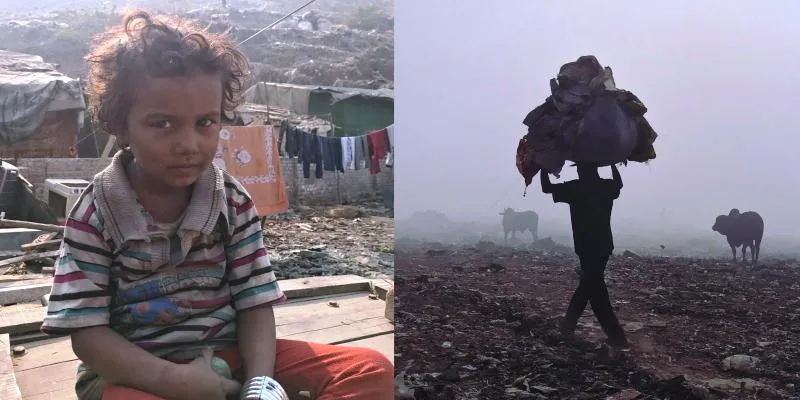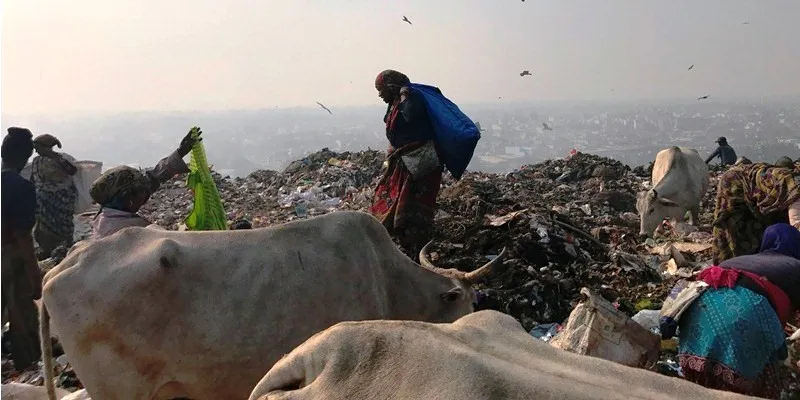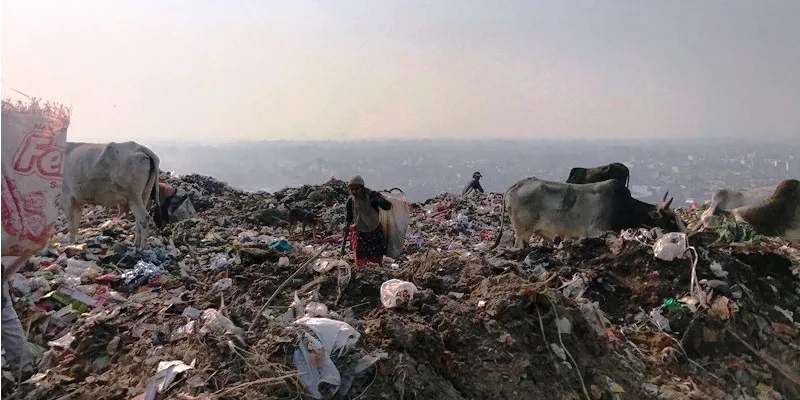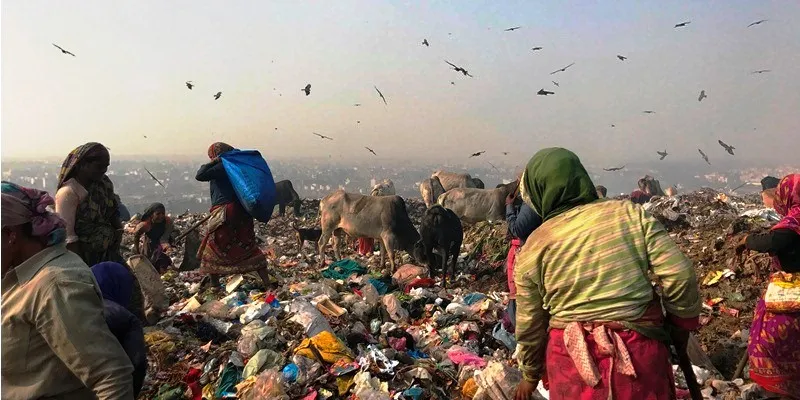In smog hazed Delhi, this NGO is on a mission to protect waste pickers with anti-pollution masks
Chintan India has launched a campaign to buy anti-pollution masks for the poor, left defenceless against the toxic smog and poor air quality Delhi presently battles.

Need of the hour
Oscillating between severe and hazardous, the air we breathe is slowly killing us. The Lancet Commission concluded that approximately 1.81 million Indians die every single year due to air pollution.
With the capital making news as one of the highest polluted cities in the country, the worst hit are individuals who are out on the streets cleaning up after the mess you and I make.
The privileged few manage to arm themselves with air purifiers, masks, and the option of work-from-home, but for waste pickers who on an average earn around 300 rupees a day, this is not possible.

Their job is crucial to their sustainability, and it is ironic that at the same time it contributes to their mortality. They live near landfills, which are significant contributors of air pollution as they are constantly on fire emitting toxic fumes and particulate matter.
In Delhi alone, around 1,500 waste-picker families live near the Ghazipur landfill. With tons of garbage dumped there every day, it invariably means more waste is burned and pollution generated. The proximity of their homes to these sources of pollution as well as their inability to defend themselves against it makes them extremely vulnerable.
To offer immediate assistance to this community bearing most of the brunt, Chintan India, a non-profit, non-governmental, environmental research and action group, has launched a crowdfunding campaign called ‘Help Waste-pickers Breathe' to provide some relief by raising funds to buy anti-pollution masks for 5000 waste pickers.

Providing immediate relief is the current goal
Chintanis geared towards inclusive, sustainable and equitable growth for all works for environmental justice in partnership with people and groups from diverse sections of society.
The organisation’s focus is on ensuring equitable and sustainable production and consumption of material, and improved disposal of waste. An important part of its working is ensuring green jobs, security and dignity for the urban poor, many of whom earn a living as waste recyclers.
Rajat Rai Handa, Manager Advocacy and Communications, Chintan India, says, “Our initiatives include research, campaigns, policy interventions, building capacity among those engaged in recycling, and creating awareness about the need for reduced consumption and better waste management among the middle and upper classes.”

Shifting focus to this particular campaign he adds, “As for this campaign, we recognise that masks are not a solution to our air affliction. They are temporary measures. However, they are necessary to deal with the current situation. We are looking to the government to create time bound measurable targets and devise enforceable plans to meet them. While we are advocating for systemic changes as well, the need for immediate relief cannot be ignored.
The NGO believes that for waste-pickers this mask would mean access to a way of defending themselves against the horrifying pollution levels. On the landfills, this mask would help them breathe cleaner air and help control the toll pollution takes on their health. “In fact, this is a measure recommended by doctors to deal with this public health emergency. In addition to this, those already facing respiratory illnesses will find some relief with these masks,” says Rajat.

The plan of action
Working very closely with Safai Sena, a waste pickers’ organisation that has roots in different regions of Delhi, Chintan aims to distribute the masks to the waste collector communities that they work with near Bhalaswa and Ghazipur landfills.
The campaign's goals are relatively simply with the clear plan of action shares Rajat. “We will crowdfund for the masks, distribute it to about 5,000 waste pickers and hold information sessions to emphasise the importance of its use. This is just one of the small ways we can provide immediate relief.”
The 15-member team will conduct workshops and awareness raising activities that will help mobilise the community.
Furthermore, through policy advocacy Chintan is also approaching government departments to take stringent measures to curb rising levels of pollution. “We are also in touch with leading doctors, lawyers and other members of the community, as we believe if all sections of society contribute and work together, a lot can be achieved. Now all we need is your support,” concludes Rajat.







